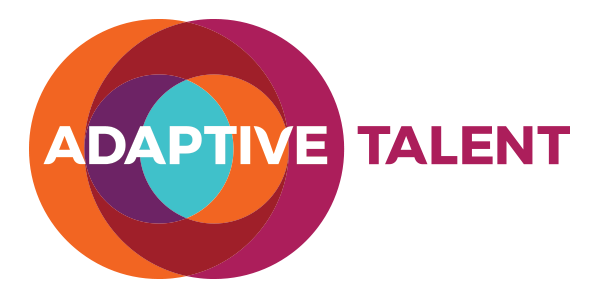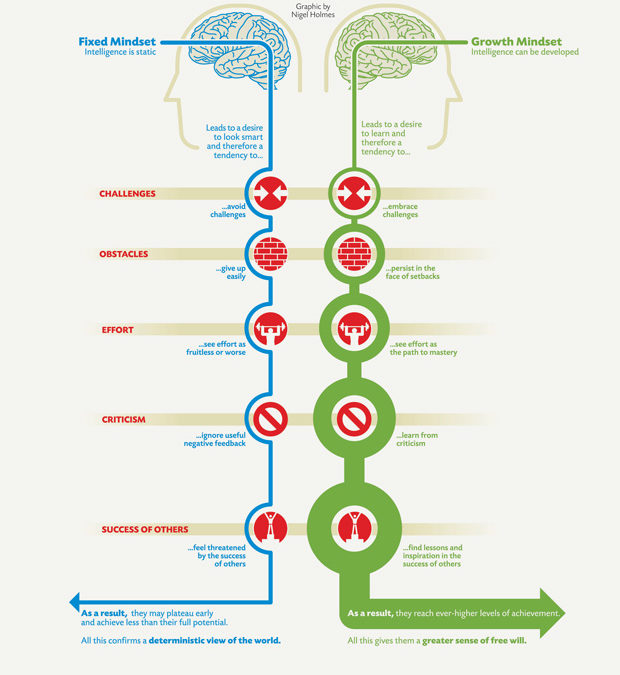I recently read about Spotify’s cultural practice of celebrating failures as a source of continuous development. They also employ craft leaders who focus on continuously developing people’s skills, specialized training, and employee-driven on-demand feedback from peers. Sounds like a cool place to work. Note that they separate compensation reviews from performance reviews and developmental feedback, something I’ve endorsed for several years.
She also touched on the difference between a growth versus fixed mindset, illustrated above, which essentially allows people to thrive by experiencing life as one continuous positive lesson. From a neuroscience perspective, this means accessing the majority of your brain’s power by both managing your fears and getting yourself motivated by goals. Remember, your brain (the piece of your brain responsible for the fight or flight response is called the Amygdala) assesses threats 5-7 times per second, and the default mode is that something is a threat.
So how to do this at an individual and team level when there’s so much at risk? Here are some easy tips:
- Recognize your inner critic voice – this is the personification of your Amygdala, who in all reality is trying to serve you but is overly sensitive. Ignoring it rarely works, so I suggest instead picking a name for it, and then instead noticing “oh, my critic arrived again. What’s triggered that?”
- Be intentional about your perspective and attention – Is the glass half full or empty? Choosing how you want to view a past or future experience is huge because anything threatening is going to release stress hormones that will reduce your brain’s functioning in the pre-frontal cortex (the place where your highest level thinking occurs). In other words, stressing out actually makes you less capable. Instead, pick an empowering theme, colour, whatever that helps you feel great about the experience, and then pay attention to all the things that are going right and seeing the humour in things if they don’t.
- Use the principles of Agile and continuous learning to create a culture that thrives via learning. Especially today, given how fast things change, teams need the blend of explicit strategies, assumptions, roles, and resources AND retrospectives to help adjust based on lessons learned both around the task but also the way people are working together. Many teams just focus on the task (the “what”) but that misses the opportunity to be intentional about how an individual or team worked together. When people are aligned on values,
Creating adaptability in your organization begins by developing your people and organization with intention and via an organizational framework. These things build upon themselves and require constant investment and balancing. Adaptive Talent is focused on helping CEOs and leaders improve execution and adaptability through experimentation and development work that allows your human capital to focus most of their efforts on value creation and protection.
The Adaptive Talent team would welcome the opportunity to help you and your team improve your results and adaptability via our culture and organizational development consulting, communications and coaching / mentoring training, total rewards consulting, assessments, leadership coaching and development programs and retained search to help you land high impact talent.

